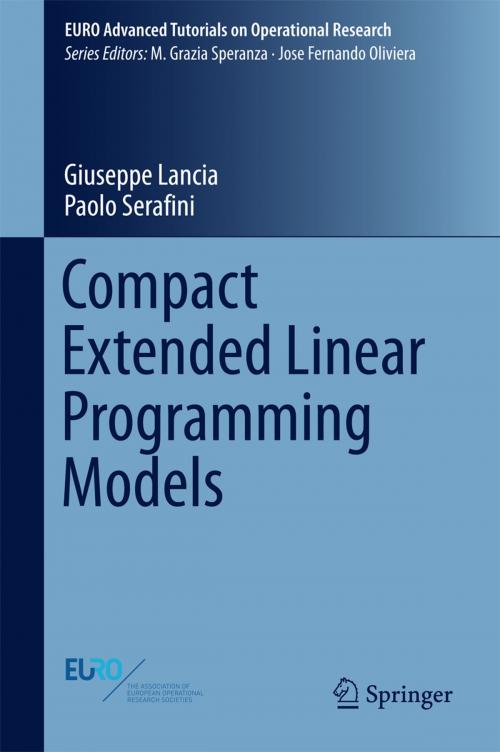Compact Extended Linear Programming Models
Business & Finance, Management & Leadership, Operations Research, Nonfiction, Science & Nature, Mathematics, Applied| Author: | Giuseppe Lancia, Paolo Serafini | ISBN: | 9783319639765 |
| Publisher: | Springer International Publishing | Publication: | August 31, 2017 |
| Imprint: | Springer | Language: | English |
| Author: | Giuseppe Lancia, Paolo Serafini |
| ISBN: | 9783319639765 |
| Publisher: | Springer International Publishing |
| Publication: | August 31, 2017 |
| Imprint: | Springer |
| Language: | English |
This book provides a handy, unified introduction to the theory of compact extended formulations of exponential-size integer linear programming (ILP) models. Compact extended formulations are equally powerful, but polynomial-sized, models whose solutions do not require the implementation of separation and pricing procedures. The book is written in a general, didactic form, first developing the background theoretical concepts (polyhedra, projections, linear and integer programming) and then delving into the various techniques for compact extended reformulations. The techniques are illustrated through a wealth of examples touching on many application areas, such as classical combinatorial optimization, network design, timetabling, scheduling, routing, computational biology and bioinformatics. The book is intended for graduate or PhD students – either as an advanced course on selected topics or within a more general course on ILP and mathematical programming – as well as for practitioners and software engineers in industry exploring techniques for developing optimization models for their specific problems.
This book provides a handy, unified introduction to the theory of compact extended formulations of exponential-size integer linear programming (ILP) models. Compact extended formulations are equally powerful, but polynomial-sized, models whose solutions do not require the implementation of separation and pricing procedures. The book is written in a general, didactic form, first developing the background theoretical concepts (polyhedra, projections, linear and integer programming) and then delving into the various techniques for compact extended reformulations. The techniques are illustrated through a wealth of examples touching on many application areas, such as classical combinatorial optimization, network design, timetabling, scheduling, routing, computational biology and bioinformatics. The book is intended for graduate or PhD students – either as an advanced course on selected topics or within a more general course on ILP and mathematical programming – as well as for practitioners and software engineers in industry exploring techniques for developing optimization models for their specific problems.















